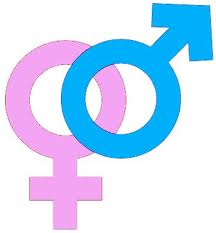
Gender roles are omnipresent in our society, and although rapidly transforming, they remain fixed and rigid for many. Unfortunately, like an unwanted disease, gender has the potential to destroy the wondrous individuality within each of us. For many, gender is wrongly perceived to be biological and innate. "Boys will be boys". "Girls will be girls". What we should be saying is "Boys are taught to be boys, and girls are taught to be girls".
On occasion, gender is an antecedent to a mental health malady. Not measuring up can have a horrendous impact on our sense of wellbeing. "I can't tell my wife (or partner) that." "What would my husband (or partner) think if he knew the real me?" What we mean to say sometimes is: "My gender role doesn't fit, and I don't know how to let others know who I really am because who I really am is not the hyper-masculine or hyper-feminine person I think I am supposed to be." One of the monumental gifts of feminism was the freeing of millions of women from the bondage of gender expectations. Today, we are far less rigid about females adhering to a feminine code of conduct than say, 60 years ago. But still, women continue to live with an unspoken code that requires a certain amount of decorum.
Men, on the other hand, have been less freed from the bondage of masculinity, and therefore, often suffer inner turmoil about how to be properly macho enough, and yet still be true to the human heart lurking beneath the football jersey and the oil change. Gender impacts relationships in myriad ways. People often bring their preconceived expectations of what it means to be a 'man' or a 'woman' to the table. If a person fails to meet those expectations, trouble can ensue. Perhaps, we should assume nothing about gender when engaging with other people. Let others show us their gender in whatever form it may take. The human condition is vast and complex. Masculine males and feminine females are but two polar opposites on a scale that is wide, varied and wonderful. Most people lie somewhere in the middle and move about constantly. So, whether you are more masculine or more feminine or equal parts both, rejoice! And, rejoice in those around you, and celebrate whatever gender they bring to your table.
Be kind to others and to yourself.
© Copyright 2013 Douglas Layer, LMHC
On occasion, gender is an antecedent to a mental health malady. Not measuring up can have a horrendous impact on our sense of wellbeing. "I can't tell my wife (or partner) that." "What would my husband (or partner) think if he knew the real me?" What we mean to say sometimes is: "My gender role doesn't fit, and I don't know how to let others know who I really am because who I really am is not the hyper-masculine or hyper-feminine person I think I am supposed to be." One of the monumental gifts of feminism was the freeing of millions of women from the bondage of gender expectations. Today, we are far less rigid about females adhering to a feminine code of conduct than say, 60 years ago. But still, women continue to live with an unspoken code that requires a certain amount of decorum.
Men, on the other hand, have been less freed from the bondage of masculinity, and therefore, often suffer inner turmoil about how to be properly macho enough, and yet still be true to the human heart lurking beneath the football jersey and the oil change. Gender impacts relationships in myriad ways. People often bring their preconceived expectations of what it means to be a 'man' or a 'woman' to the table. If a person fails to meet those expectations, trouble can ensue. Perhaps, we should assume nothing about gender when engaging with other people. Let others show us their gender in whatever form it may take. The human condition is vast and complex. Masculine males and feminine females are but two polar opposites on a scale that is wide, varied and wonderful. Most people lie somewhere in the middle and move about constantly. So, whether you are more masculine or more feminine or equal parts both, rejoice! And, rejoice in those around you, and celebrate whatever gender they bring to your table.
Be kind to others and to yourself.
© Copyright 2013 Douglas Layer, LMHC
 RSS Feed
RSS Feed